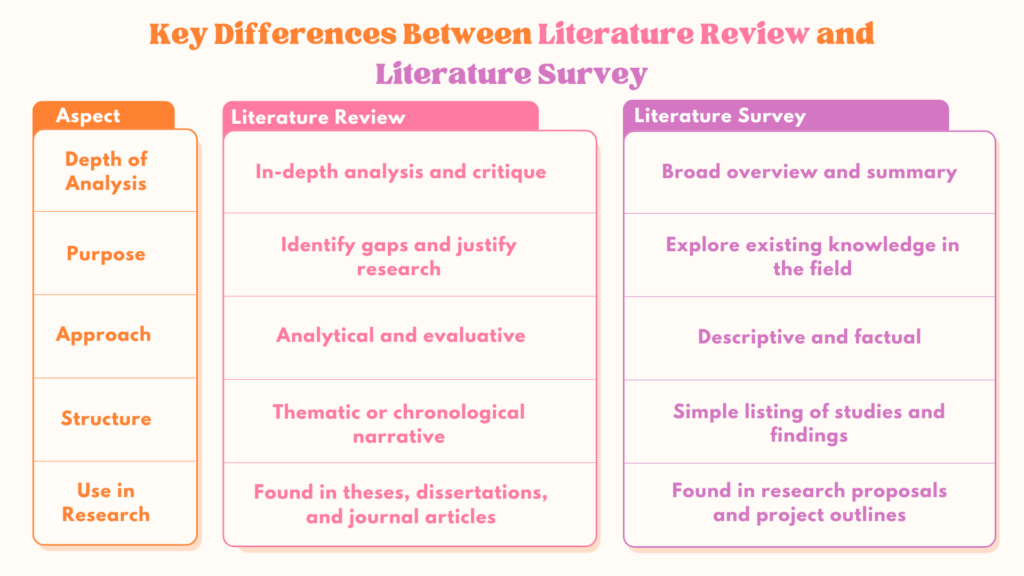04Dec

In academic writing, terms like literature review and literature survey are often used interchangeably, leading to confusion. However, they serve distinct purposes. Understanding their differences is essential for researchers, particularly PhD students aiming to produce high-quality academic work.
Key Characteristics of a Literature Review:
A literature survey, on the other hand, is a broad overview of existing research on a topic. It is less analytical and more descriptive, focusing on gathering and summarizing information.
Key Characteristics of a Literature Survey:
Key Differences Between Literature Review and Literature Survey

For researchers, particularly in competitive fields, knowing whether to conduct a literature review and literature survey can save time and effort. It also ensures you align your research objectives with the right approach.
For PhD scholars, understanding this distinction is critical when working with publishing standards like Scopus or SCI journals, where literature reviews often hold more weight.
In summary, a Literature Review and Literature Survey are distinct tools for academic success; the former critically evaluates research to identify gaps, while the latter summarizes existing studies for a broader understanding. Both are tailored to different research needs, so choose wisely based on your objectives, and let expert guidance, like Kenfra Research, elevate your work to the highest standards.
At Kenfra Research, we provide comprehensive PhD support, helping scholars craft plagiarism-free literature reviews and surveys tailored to Scopus and SCI standards. Whether you’re just starting or refining your research, our experts ensure your work stands out in the academic world.
Contact us today and elevate your research journey!
The University Grants Commission (UGC) 12B status refers to the recognition given to higher education institutions in India. The UGC... read more
IITs see lowest enrolment for doctoral programmes: The Indian Institutes of Technology (IITs) were highly regarded institutions in India known for... read more
The PhD Project is a non-profit organization that was created to increase the diversity of business school faculty. This organization... read more
The result-based document was authored by a group of technical professionals and includes new algorithms, along with implementation information and... read more
It seems like you're mentioning an intake quota of 10,000 students for diploma-to-degree engineering admissions based on a merit list.... read more

Embarking on a PhD Journey for Success is both rewarding and challenging. It’s a significant commitment of time, energy,... read more
WhatsApp us
Leave a Reply